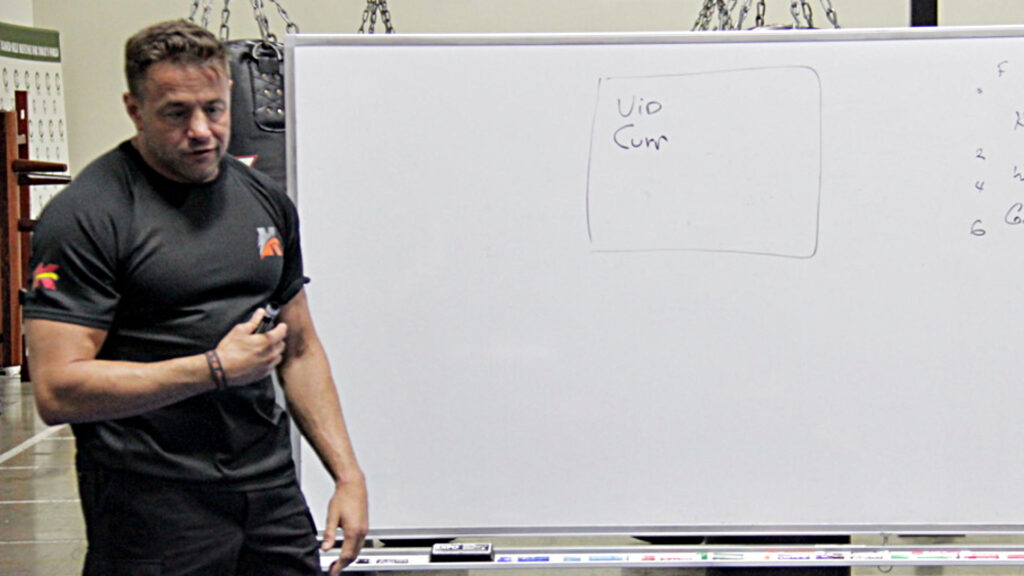
In the early 90s, I teamed up with a fellow aspiring entrepreneur, a friend who shared my passion and eagerness for venturing into business development and growth. We both recognized that this entrepreneurial journey could pave the way to greater personal freedom and enriching experiences. We were aware that navigating the challenging path of entrepreneurship would open doors to business success and allow us to shape our lives more freely and enjoy enhanced experiences, both professionally and personally. This understanding fueled our drive to succeed and explore the potential rewards of building our own ventures.
Together, we engaged in numerous brainstorming sessions, eagerly exploring various ideas and strategies for launching our respective business ventures.
A shared passion for innovation and progress fueled our approach to entrepreneurship. We spent countless hours discussing potential business models, market opportunities, and the steps needed to transform our visions into reality. The initial phase of our journey was marked by a vibrant exchange of ideas and a mutual commitment to making a mark in the world of business.
However, a crucial difference soon became apparent in our respective approaches to taking action. While we both faced the common challenge of navigating the analysis phase of development, our abilities to move beyond this stage diverged significantly.
Thanks to my martial arts background, I developed a keen understanding of the importance of decisive action. This training had ingrained in me the value of moving swiftly from planning to execution, recognizing that progress often requires a leap of faith. Thus, within just a few months, I began implementing critical components of my business plan, setting the wheels in motion toward tangible progress.
In contrast, my friend found himself mired in the pursuit of perfection. He was fixated on ironing out every minor detail and ensuring that every aspect of his plan was flawless before taking any concrete steps. This quest for perfection, while well-intentioned, ultimately hindered his ability to move forward.
After six months, when we reconvened to share our experiences and progress, the contrast in our journeys was stark. I had successfully launched my business and was already witnessing the inflow of revenue, whereas my friend had yet to make any significant strides. He remained caught in analysis paralysis, immobilized by his desire to perfect his plan without implementing any part of it.
Our discussion revealed that he struggled with a common entrepreneurial pitfall—analysis paralysis. This state of overthinking and over-planning had left him frozen, unable to take the necessary steps to bring his ideas to life. It was a clear reminder of the delicate balance between careful planning and decisive action in entrepreneurship.
This experience underscored a valuable lesson in business: success often hinges on the ability to transition from planning to action. While thorough analysis and meticulous planning are undoubtedly important, they must eventually give way to concrete steps and real-world implementation. As entrepreneurs, we must embrace the courage to act, even in the face of uncertainty, if we wish to transform our dreams into reality.
This phenomenon extends beyond just entrepreneurship; it can impact any aspect of life. If left unchecked, it has the potential to immobilize you. Recognizing when you’re falling into this trap and breaking free from it is a vital life skill. Taking action, any action, even if it’s imperfect, is crucial to moving forward and overcoming this paralysis.
Having a structured process for assessment and decision-making is vital across all aspects of life, as it significantly influences the effectiveness and outcomes of our decisions. Firstly, such a process promotes clear thinking, especially in complex situations, by breaking down problems into more manageable parts. This reduces the feeling of being overwhelmed and ensures consistency in how decisions are made. In turn, this consistency is key for both personal and professional development.
Moreover, a systematic approach to decision-making greatly improves problem-solving abilities. One can identify underlying issues and devise more effective solutions by thoroughly assessing situations. This leads to better, more informed choices, as decisions are based on a comprehensive understanding of the situation rather than guesses or assumptions.
Furthermore, having a reliable decision-making process builds confidence, especially in critical situations, as it alleviates doubt and minimizes second-guessing. It also includes the flexibility to adapt to changing circumstances or new information, which is crucial given the unpredictable nature of life.
Regularly employing a structured approach to decisions also sharpens critical thinking skills, a benefit that extends beyond the immediate decision at hand. Additionally, it saves time and energy by expediting the decision-making process, allowing these resources to be utilized more efficiently elsewhere.
A well-defined process for assessing situations and making decisions is fundamental to effective living. It enhances the ability to navigate life’s challenges and empowers one to make sound choices and pursue goals with greater confidence and clarity.
Avoiding paralysis by analysis and making effective decisions involves several strategies:
- Set Clear Goals: Begin with clearly understanding what you want to achieve. This helps focus your decision-making process and prevents you from getting sidetracked by irrelevant details.
- Limit Information Gathering: While gathering information is crucial, it’s important to set limits. Too much information can be overwhelming. Collect enough data to make an informed decision, but avoid going down endless rabbit holes.
- Set a Deadline: Give yourself a specific timeline to make a decision. Deadlines create a sense of urgency and can prevent overthinking.
- Break Down the Decision: Large decisions can be daunting. Break them down into smaller, more manageable parts. Tackle each part one at a time to avoid feeling overwhelmed.
- Trust Your Instincts: Sometimes, your gut feeling is your best guide. If you’ve done your due diligence, don’t be afraid to trust your instincts.
- Use the 80/20 Rule: Focus on the information or actions that will yield the most significant results. 20% of your efforts will often produce 80% of the desired outcome.
- Seek Input, But Don’t Rely Solely on It: Getting different perspectives can be helpful, but too many opinions can lead to confusion. Seek advice if necessary, but remember the final decision is yours.
- Embrace Imperfection: Accept that no decision is going to be perfect. There’s always some level of uncertainty, but waiting for the perfect moment or the perfect choice can lead to inaction.
- Learn from Past Decisions: Reflect on previous decisions you’ve made. Consider what worked and what didn’t, and use these insights to inform your current decision-making process.
- Acknowledge the Fear of Making Mistakes: Often, analysis paralysis stems from a fear of making the wrong decision. Acknowledge this fear, but don’t let it control you. Remember that mistakes are opportunities for learning and growth.
- Take Action: After you’ve made a decision, take decisive action. Implement your decision and adjust as needed based on the outcomes.
By employing these strategies, you can avoid getting stuck in analysis paralysis and become more decisive, leading to more effective and timely decision-making. Building on this, my objective is to expedite the cultivation of the warrior’s mindset and promote the fighter’s mentality worldwide. My aim is to develop and offer innovative training and knowledge, arming individuals with the tools and skills necessary to confront better and manage life’s challenges, including the potential for violence. This commitment to providing top-tier training is at the heart of our teaching and coaching programs, ensuring that each individual is well-prepared and resilient in the face of adversity.
Our Warriors Path Coaching program emphasizes the importance of robust decision-making processes. These mind tools are essential for effectively navigating life’s challenges and taking decisive action toward achieving your goals. If you want to enhance your decision-making skills and gain better control over your life’s trajectory, we invite you to learn more about our coaching program. For further information and to take the first step towards empowerment, please visit us at www.sifualanbaker.com.

Alan Baker is celebrated for his exceptional skill in creating customized Defensive Tactics Programs and his prowess in high-performance coaching. Tailoring his expertise to meet the needs of law enforcement agencies, military groups, and security companies, Alan crafts training curriculums that are grounded in practical techniques, adaptability to real-life scenarios, and intensive, situation-specific exercises. His training methodologies are meticulously designed to elevate the operational effectiveness and situational preparedness of individuals in high-stakes environments. Learn more about Alan’s distinctive programs here.
Beyond his tactical acumen, Alan is also a foremost “mindset” coach, adept at tapping into the untapped potential within individuals. He is particularly attuned to the current societal trend that often overlooks traditional masculinity and the cultivation of strength. Addressing this, Alan champions the development of a warrior spirit — the readiness to confront chaos and take decisive action when necessary. He passionately mentors professionals, entrepreneurs, and individuals on their personal development journeys, focusing on fostering a mindset dedicated to excellence. His coaching is anchored in pragmatic strategies that fortify mental resilience, enhance focus, and stimulate drive. Engaging with Alan sets you on a transformative journey where mental obstacles are overcome, innate strengths are recognized and honed, and your objectives become distinctly attainable. His insights are key in boosting performance and developing a mindset geared for victorious accomplishments.
For a deeper exploration of Alan’s mindset philosophy and his approach to empowering especially men to embrace their strength and resilience, delve into his insightful collection of books. If you’re ready to accelerate your personal and professional growth under Alan’s expert guidance, connect through his official website.
